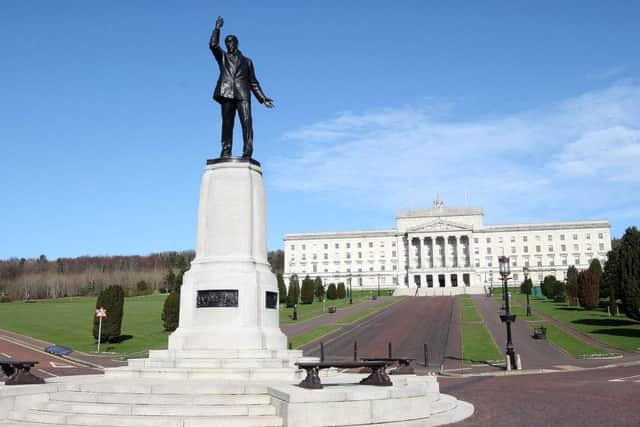RHI scandal: '˜Spads should advise, and ministers should decide'


The executive has finally collapsed and there is to be an election on March 2 – and who knows, another one to follow.
But whatever the eventual outcome, given the political vitriol continuing among the political parties it is likely to be some time before the ‘Business as Usual’ sign is back up at Stormont.
Advertisement
Hide AdAdvertisement
Hide AdAnd now the finance minister, Mairtin O’Muilloir, has belatedly announced the holding of a public inquiry into the whole RHI fiasco.


But it needn’t have come to this and why an investigation of the scheme could not have been instigated much earlier without the need for political resignations and the collapse of the institutions is surreal.
Never mind a public inquiry, there was already available a process for investigating such issues and that is that the Northern Ireland Audit Office (NIAO), at the behest of the Comptroller & Auditor General, has the authority to initiate an investigation into the operation of any scheme to establish the facts, identify the shortcomings and to make recommendations on lessons to be learned.
The NIAO report would then be considered by the Public Accounts Committee (PAC) who could call witnesses and hold individuals to account.
Why that has not happened is for others to answer.


But let us give the public inquiry a chance.
Advertisement
Hide AdAdvertisement
Hide AdFirst there should be a proper paper trail within the department responsible for the RHI Initiative which should help to establish the relevant facts and Andrew McCormick’s revelations at this week’s PAC hearing provide further valuable insight into the alleged role of certain special advisors and the failure of officials to identify the flaws within the RHI Scheme.
There are a number of key aspects on which the public inquiry in my view, needs to focus inter-alia.
First as I recall, in his interview with Stephen Nolan some weeks ago, Jonathan Bell, then minister for the Department of Economy, said that the permanent secretary of the department, Andrew McCormick, had expressed concerns to him about its financial viability and had advised that he (Jonathan Bell) would need to give a ministerial direction if the scheme was to continue.


Jonathan Bell went on to allege that special advisors in OFMDFM had “over-ruled” him, citing the need for “collective responsibility” and claiming that he could not take such decisions in isolation.
Advertisement
Hide AdAdvertisement
Hide AdThe key question I would raise here is, did the business case, have to be ratified by the executive or did the Department for the Economy have the delegated powers to implement the scheme without recourse to the executive?
But collective responsibility, whilst a laudable objective, does not in my book directly result in ‘Corporate Accountability’ within the governance guidelines under which as I understand it, government departments operate.
Unless the rules have changed from my day in the Northern Ireland Civil Service (NICS), the “Accounting Officer Memorandum” states that the permanent secretary of each department, as accounting officer, is personally responsible for every single £ pound spent of taxpayers money and if they believe that any scheme or expenditure within their remit does not provide value for money they must advise the relevant minister who must then consider the need to provide a ministerial direction if they believe the scheme should continue on other grounds.


So, it is not in the gift of unelected special advisors to usurp the minister’s decision.
Advertisement
Hide AdAdvertisement
Hide AdIt is up to advisors only to advise and for ministers to decide, a point which Andrew McCormick alluded to in his evidence to the PAC.
So, let us await the outcome of the public inquiry, which I hope will be thorough and wide-ranging in its remit in order to establish the truth behind the mostly potentially costly waste of taxpayers’ money in the history of the NICS.
Derek Lynn, Ballymena